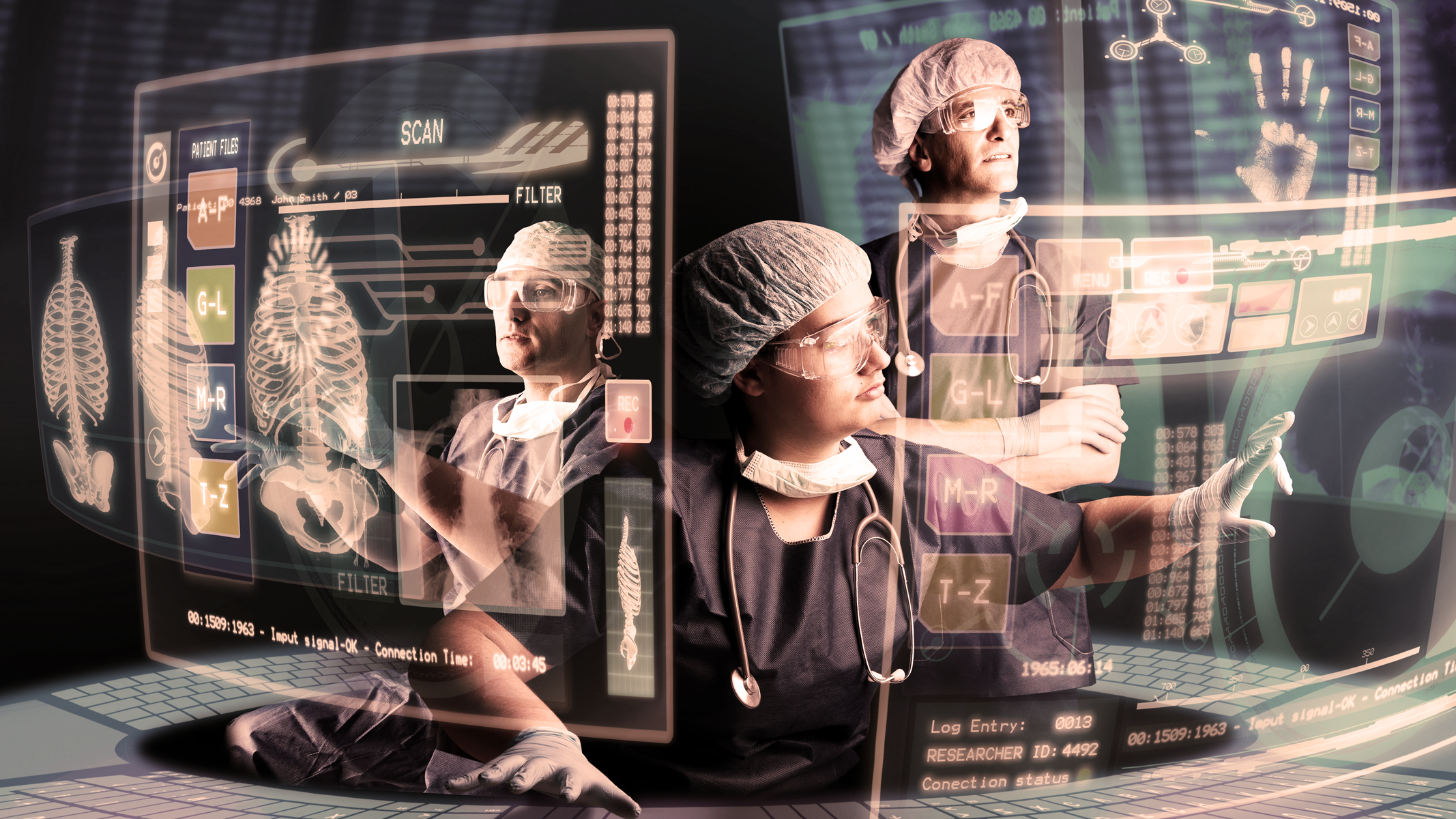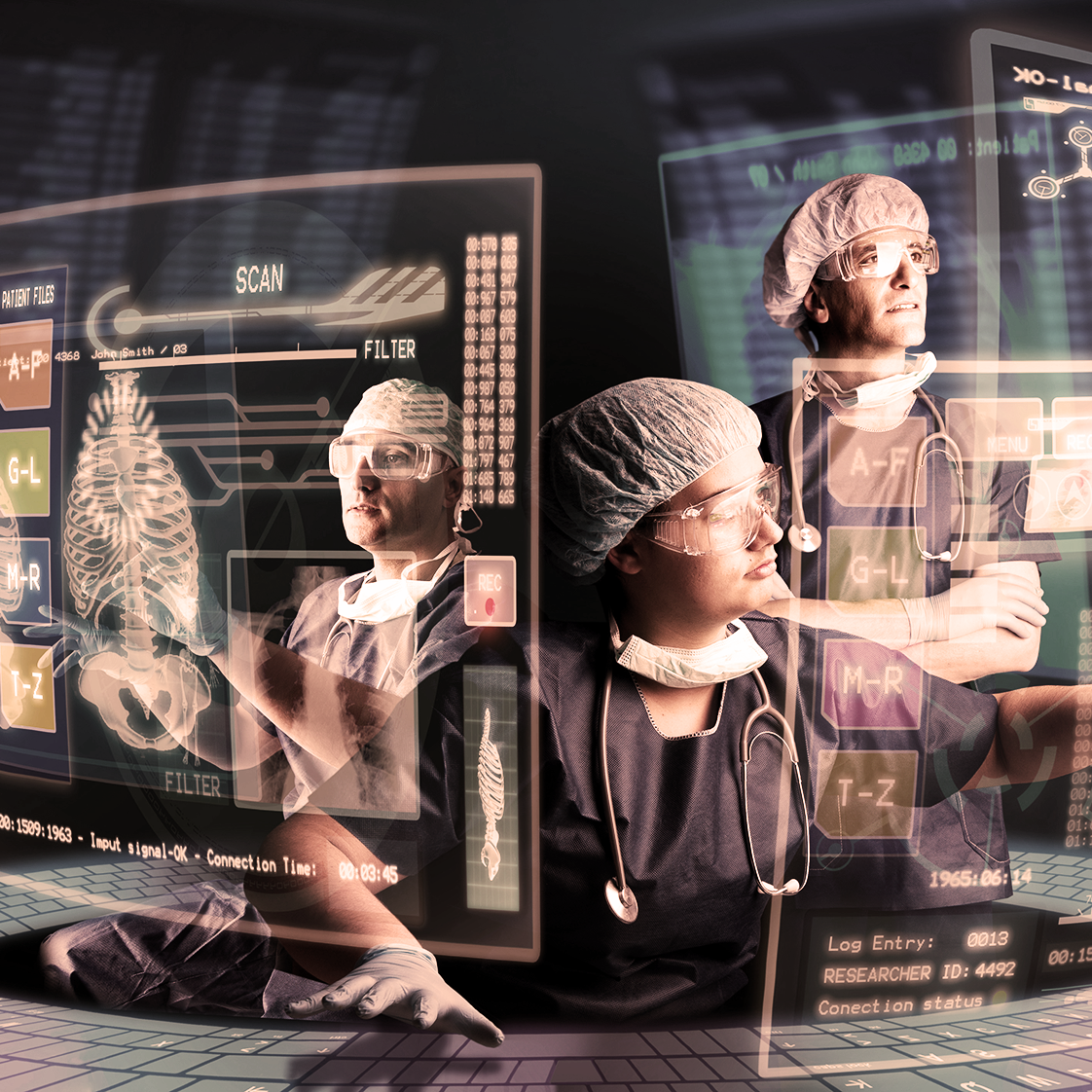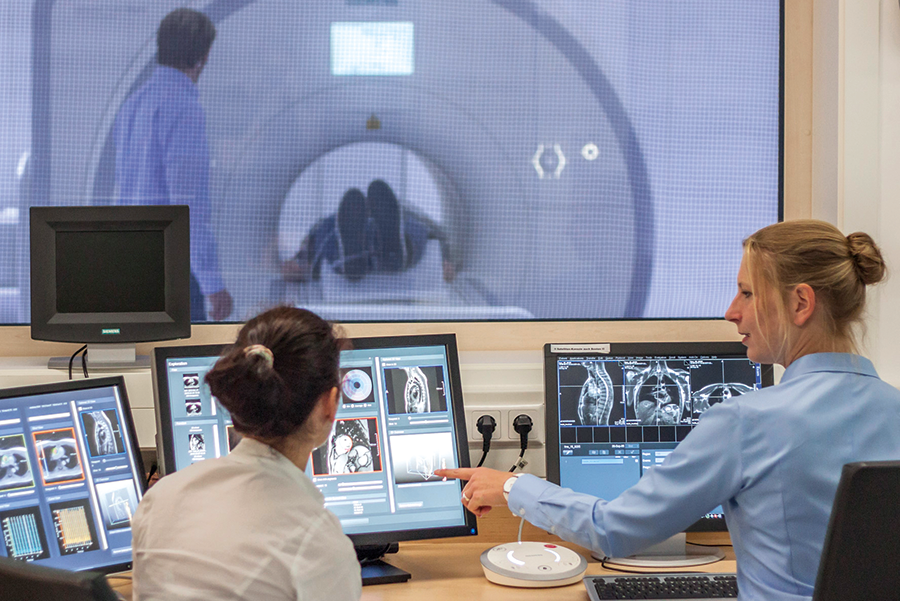Research in the health sector aims to improve the quality of care for patients, establish the most efficient healthcare system possible and identify trends in medical technology. Today's medicine offers many possibilities to facilitate and improve prevention, diagnosis, therapy planning, treatment and success control with the help of IT. Interactive assistance systems in everyday clinical life make it possible to obtain diagnostic and therapy-relevant information. Software systems support the work in medical practices, clinics and pharmacies. Digital process chains, for example on the basis of an electronic patient file, enable individual forms of treatment. Thanks to health telematics, consultations as well as treatments can be carried out from any location. On the other hand, they require sustainable standards for data protection and information security.


